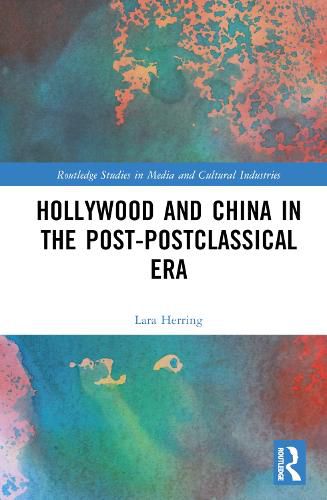Readings Newsletter
Become a Readings Member to make your shopping experience even easier.
Sign in or sign up for free!
You’re not far away from qualifying for FREE standard shipping within Australia
You’ve qualified for FREE standard shipping within Australia
The cart is loading…






This book examines the contemporary relationship between Hollywood and China as case studies that help to define a new era in Hollywood film industry, style, and economics, which is termed the 'post-postclassical' period.
Centred around a case study of Legendary Entertainment, the analysis shows how the studio adopted and adapted its global strategies in order to gain access to and favour within the Chinese film market, and how issues of censorship and financial performance affected the choices they made. Demonstrating Legendary's identity as a 'post-postclassical' studio and examining how this plays into its China-strategy, this book explores how this particular case and the necessary analysis of wider political economic relations offer a periodisation of the contemporary Hollywood-China relationship.
This book will interest students and scholars of media and film studies, as well as academics whose research interests include global cinema, Hollywood, Chinese cinema, transnational cinema, and film industry studies.
$9.00 standard shipping within Australia
FREE standard shipping within Australia for orders over $100.00
Express & International shipping calculated at checkout
This book examines the contemporary relationship between Hollywood and China as case studies that help to define a new era in Hollywood film industry, style, and economics, which is termed the 'post-postclassical' period.
Centred around a case study of Legendary Entertainment, the analysis shows how the studio adopted and adapted its global strategies in order to gain access to and favour within the Chinese film market, and how issues of censorship and financial performance affected the choices they made. Demonstrating Legendary's identity as a 'post-postclassical' studio and examining how this plays into its China-strategy, this book explores how this particular case and the necessary analysis of wider political economic relations offer a periodisation of the contemporary Hollywood-China relationship.
This book will interest students and scholars of media and film studies, as well as academics whose research interests include global cinema, Hollywood, Chinese cinema, transnational cinema, and film industry studies.